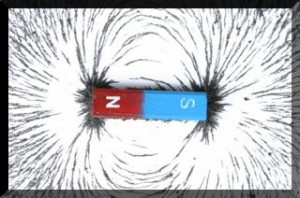Why is Father’s Day 2014 a bit special for Catholics?
Well, in a fortunate coincidence – this weekend we celebrate the ‘Solemnity of the Most Holy Trinity’ – the Father, the Son, and the Holy Spirit.
 So this year, Father’s Day coincides with the day that we stop and ponder the mystery of the Triune God. (The last time was 2011, and the next time will be 2019.)
So this year, Father’s Day coincides with the day that we stop and ponder the mystery of the Triune God. (The last time was 2011, and the next time will be 2019.)
I’m especially excited to be lectoring this weekend because of one particular line that is contained in the second reading. We hear this line at the beginning of every Mass, but it is rarely said by anyone except a priest. This weekend, the lector gets to say it! It’s the very last sentence of the Second Letter of Paul to the Corinthians, and I look forward to proclaiming it to whoever is present at Mass this Saturday. (If you really want to know why I like that sentence, you’ll have to get out your Bible – but rest assured, it has to do with the Holy Trinity.)
As most of you know, I’m new to Catholicism – and new to faith – and I haven’t taken the ‘plunge’ lightly. I’ve spent a good portion of these last two years studying so that I can understand (as best I can) the mysteries of our faith (or at least understand what the mystery is). This weekend, we focus on a central mystery – How can there be three Divine Persons, but only one God?
It’s possible that you’ve just accepted that notion from childhood, but there are more than a few profound concepts that spring from this mystery. As Christians, for instance, we represent the destination that the entire Old Testament ‘points to’ – and the Old Testament is decidedly monotheistic. One God.
We also know that ‘God is love’. But for God to be love, God must be more than one person. Love cannot exist without both one who loves and one who is loved. And while it is certainly true that God loves us, we simply weren’t around when God first created everything. So for God to have always been love, there must have always been two persons (plus the spirit of love itself, which makes three). The opening two lines of John’s Gospel take on an extra significance when you realize that ‘the Word’ (Jesus) simply had to be present with God (the Father) from the beginning.
I could continue pointing out the subtle consequences of a Triune God, but I’ll stop here so as not to bore you – and instead, I’ll offer up an analogy that came to me a little over a year ago when I was trying to wrap my poor little finite mind around the infinitude that is God.
I’ve never been someone who could simply ‘accept’ a mystery without at least trying to figure it out, so it was quite useful to realize that we are all quite familiar with a simple object that is both three — and one. A magnet.
Way back in science class, when the teacher first passed out the bar magnets, I started picking up anything metallic, hanging it off the rivets of my jeans, and so on. (It also may have been the first time that I tried to make a paperclip dance by moving a magnet under a table. But I digress…)
We learned that every magnet has two poles, and that these poles are constantly attracted to each other. Interesting. Constantly attracted? How?
At some point, the teacher passed out the iron filings and showed us how to ‘see’ the invisible magnetic field. (Again, I probably tried to change the pattern of the iron filings by moving the magnet underneath the table.)
So, we learned that each magnet must have two poles and a field – and that the field is actually a result of the attraction between the two poles. And the field extends out past the boundaries of the magnet itself. How? Who knows! But here I was in science class, the magnet was in my hand, and all of this was clearly ‘the truth’.
One magnet, three distinct elements – but not ‘elements’ in the sense that you can ‘snap them together like parts’ – because it doesn’t work that way. These ‘elements’ exist in such a way that each element must exist if the other two elements exist – each element cannot exist if the other two elements do not exist – and, most beautifully, each element contributes to the existence of the other two elements.
And so it is with God.
Because God is love – the very existence of the Father mandates the existence of the Son, and the love between them brings about the existence of the Holy Spirit.
Because God is love – each of the three Divine Persons of God must exist if the other two exist, cannot exist if the others do not, and – at the same time – contributes to the existence of the others. Such beautiful interlocking harmony.
So, until we see each other again…
May the grace of our Lord Jesus Christ,
and the love of God,
and the communion of the Holy Spirit be with you all.
— 2 Corinthians 13:13
Peace,
Greg
